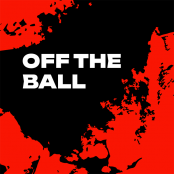Concussion has been thrust into the public conciousness after a number of high profile injuries rugby players and links to degenerative brain disease, Chronic Traumatic Encephalopathy (CTE).
There have been calls for further protection of players who suffer on-field concussion and governing rugby bodies insist on HIAs (Head Injury Assessments) before a player returns to the field of play after a head injury.
However, a new study published in the Journal of the American Medical Association Neurology says that concussions can be detected up to a week later with a simple blood test.
“We have so many diagnostic blood tests for different parts of the body, like the heart, liver and kidneys, but there’s never been a reliable blood test to identify trauma in the brain,” said Linda Papa, MD, MSC, an emergency medicine physician at Orlando Health and lead author of the study.
“We think this particular test could change that.”
At the moment CT scans are the most precise way to diagnose brain lesions and concussion, but are more costly to perform as well as posing underlying health risks (radiation exposure).
The new blood test works by detecting the presence of two key biomarkers, namely Glial fibrillary acidic protein (GFAP) and ubiquitin C-terminal hydrolase L1 (UCH-L1).
GFAP is unique to the brain and central nervous system and is released into the bloodstream following a head injury.
According to the report, these proteins remain detectable in the blood for up to a week after the head trauma.
“This could ultimately change the way we diagnose concussions, not only in children, but in anyone who sustains a head injury."
Left untreated, it can cause balance issues, vertigo, dizziness, headaches, and even epilepsy in some cases. Athletes who have from CTE are said to have presented with memory loss, trouble concentrating, depression and anxiety.
You can read the study here.
Download the brand new OffTheBall App in the Play Store & App Store right now! We've got you covered!
Subscribe to OffTheBall's YouTube channel for more videos, like us on Facebook or follow us on Twitter for the latest sporting news and content.








